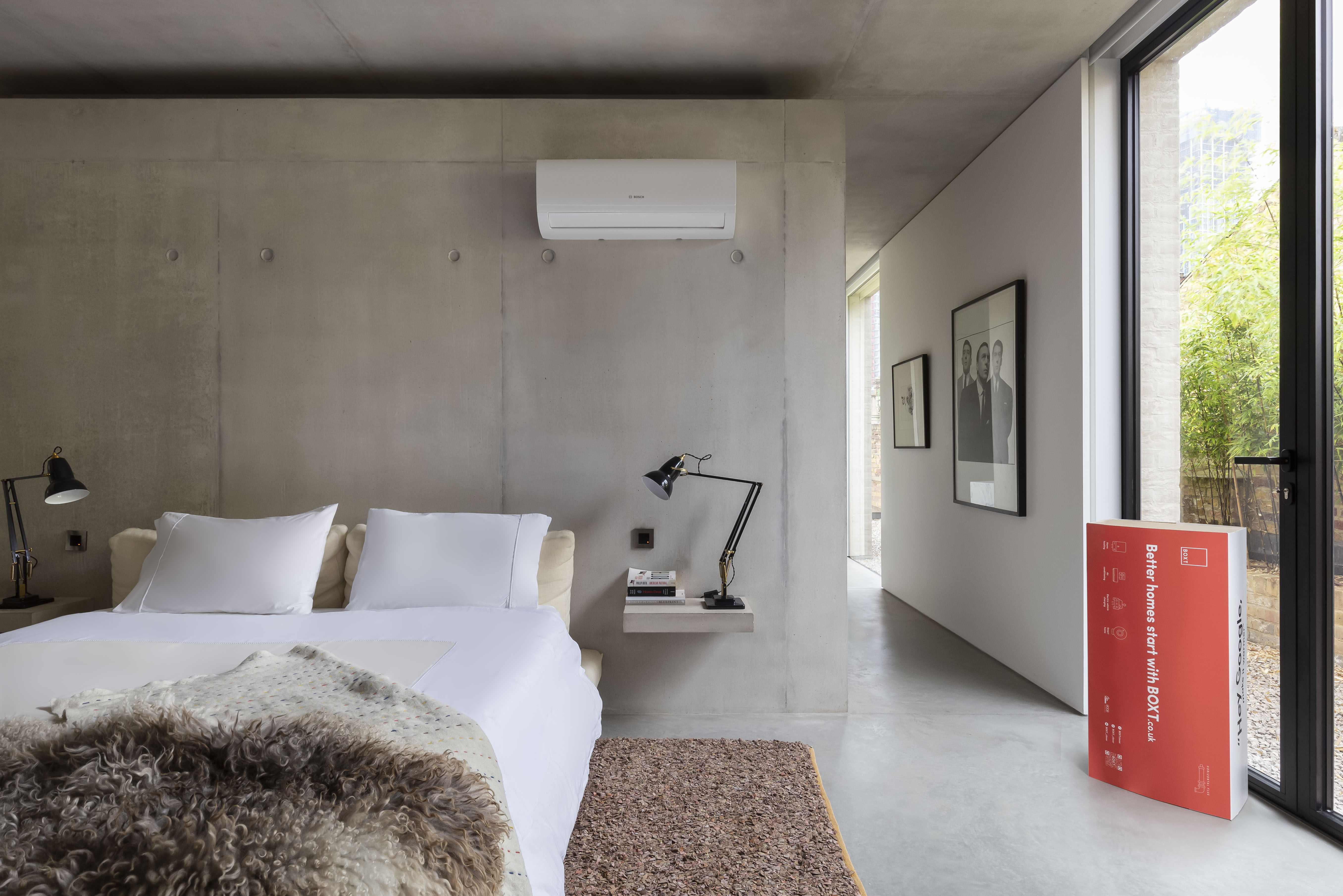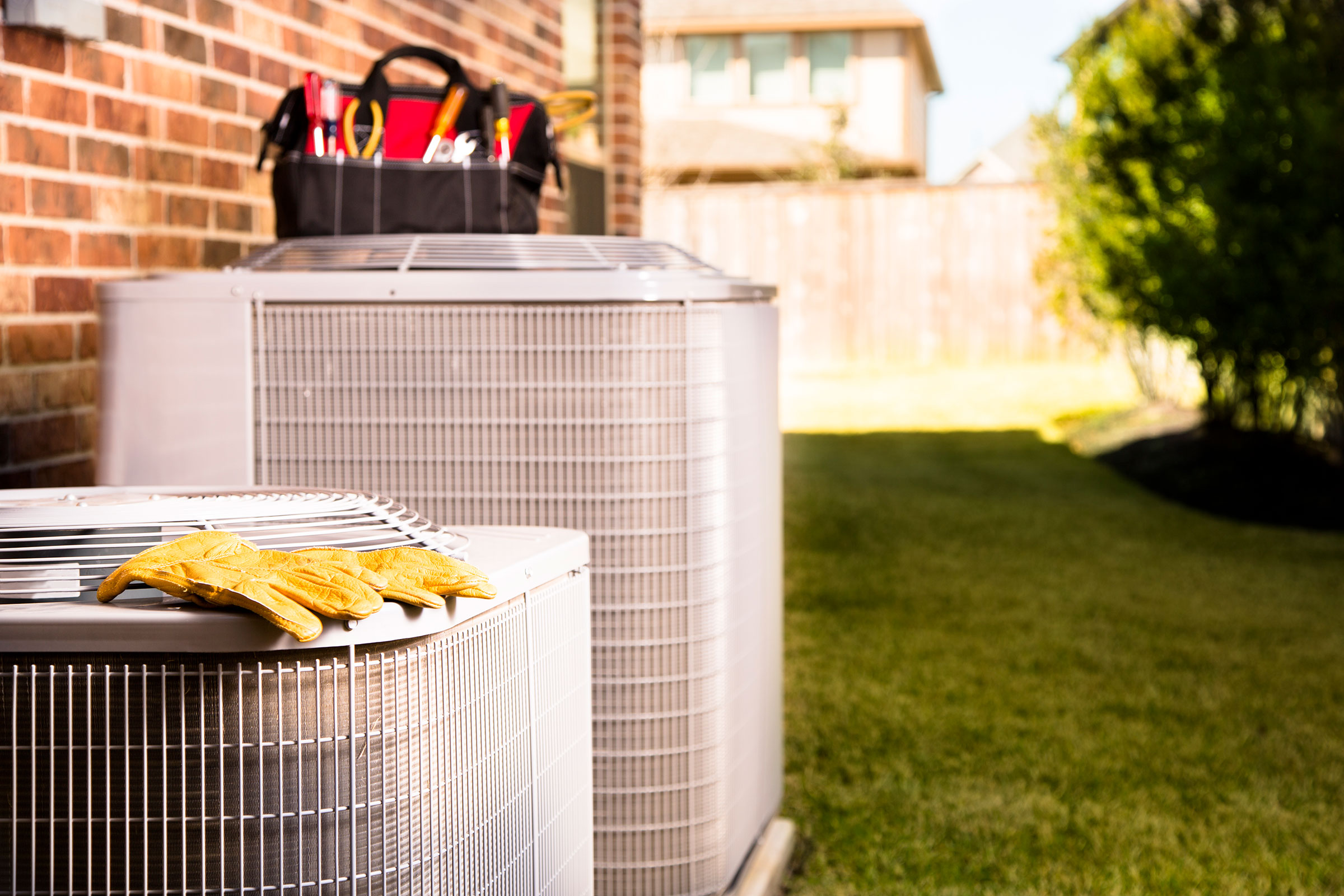AC not working? Here are 8 things to check ASAP according to industry experts
Your AC may not be working because the filter is clogged or you've got a tripped circuit breaker. Whatever the issue, getting to the root of the problem will lead to quicker solutions


Get small space home decor ideas, celeb inspiration, DIY tips and more, straight to your inbox!
You are now subscribed
Your newsletter sign-up was successful
When temperatures start going beyond 80°F and you have AC installed, you're going to be feeling pretty smug. That is unless you realize the hard way that your AC's not working because your HVAC unit has packed in...
HVAC stands for heating, ventilation and air conditioning, and lots of modern homes have it installed. But it is a luxury until it's gone because the cost of installing AC , let alone an entire HVAC system – especially in an old home that doesn't have the ductwork already set up – can quickly become expensive. Whether your AC is blowing out warm air or just not switching on at all, clogged air vents, refrigerant leaks and more may be the root of the problem. But, there is a solution to all of these – DIY or via a HVAC professional for best results.
What to check if AC is not working?
There are multiple reasons why your AC unit may not be working but as Bailey Carson, Home Care Expert at Angi says, if your AC isn't working or is blowing cool air you need to understand the root of the problem first.
Issues can be as basic as the power not being on and the unit not being plugged in, and often there are a couple of problems that come into play so you need to fix them all for a healthy system. Note however, 'Before you try to fix the issue, you need to understand what’s wrong with your AC. Test your system to make sure it isn’t blowing cool air by lowering your thermostat by five degrees and waiting to see if your AC starts blowing cooler air.' Adds Carson.
1. The thermostat is not calibrated
Or, is set too high? This is a common mistake according to Trane Residential partner, Anthony Carrino (New Jersey-based, from HGTV’s "Kitchen Cousins"). This effectively means that the temperature it's set to isn't correctly adjusted to the room's temperature. This can be lost following a power outage or if your HVAC unit is dirty (more on this below.) It could also be because the batteries aren't working if yours is battery-powered.
The solution: Check the battery if applicable and if that isn't the problem, look to set the thermostat to the correct temperature. You can re-calibrate it yourself, but for peace of mind it's often worth hiring a trained HVAC professional.
Jacob Watson, Sr. Director, Contractor Engagement at American Home Shield adds to double-check that 'the thermostat set to “Cool” (versus “Fan Only”)'.
Get small space home decor ideas, celeb inspiration, DIY tips and more, straight to your inbox!
2. A tripped circuit breaker
If your AC isn't turning on at all, both Carrino and Carson say this is likely a tripped circuit breaker or faulty wiring.
The solution: Carson says to 'Check your fuse box to see if the circuit tripped and reset it if necessary. If you think the issue is electrical, do not attempt to fix it or diagnose the issue. Electrical work can be dangerous, so bring in a pro who knows what they’re doing.'

3. The filter is clogged
If your AC is blowing warm air, a dirty filter is usually the cause and as HGTV home renovator Carmine Sabatella tells us, HVAC filter maintenance is important as when it's clogged, the whole system goes.
Likewise Traci Fournier, vice president of operations at One Hour Heating & Air Conditioning notes how changing the AC filter is year-round job, highlighting how 'The air filter is designed to capture particulate matter from the indoor environment by forcing air through the filter. To be effective, the filter must be dense enough to collect very small items, but not so dense to restrict airflow and potentially damage the AC. Different types of filters need to be changed at different intervals. Most disposable filters are designed to last for one month. Others are designed to last for up to three months, but they can still clog up early due to other factors in your home, like having pets.
Regularly changing the air filter is important because it can make a huge difference in your home's indoor air quality and energy costs. When the AC filter becomes clogged with dust, dirt, pet hair and other particles, it reduces the airflow to your system, forcing it to work harder to cool down your home. This puts a drag on your energy efficiency as well, which drives up your energy bills and wears out AC components faster.'
The solution: Change HVAC filter every 90 days for maximum AC efficiency.
4. You need to clean the outside
Leonard Ang, CEO, iPropertyManagement notes how cleaning the outside of your HVAC unit is essential to ensure nothing is blocking the air vents which could be the cause of your AC problems. Ang says 'The part of your AC system that sits outside your home is responsible for venting hot air, leaving cooler air inside. When these units get covered with leaves, grass, pollen, dust, and dirt, they work much less efficiently.'
The solution: Ensure you remove visible debris as and when, removing the exterior of the unit to reach the air vents and to keep them clear on a regular basis also.
5. A clogged AC drain
Next Fournier says that a clogged AC drain could be the reason why your AC isn't working, 'The condensate drain is located in the unit inside the home and removes condensation resulting from the refrigeration cycle. When it becomes clogged, you might notice slime, mold or even algae buildup. This will eventually lead to water pooling in the tray of the unit.'
The solution: Fournier says 'a quick fix to this is to locate the end of this drain, which is typically found outside the home, and use a wet/dry vacuum to clear out the blockage. Also, remove any water from the tray and wash it in hot, soapy water to remove any buildup.'
If you don't already have a wet/dry vac, we recommend the Tineco Floor One S5 which comes with a larger tank for better edge cleaning around the home too.
6. A refrigerant leak
Lower refrigerant levels can often lead to your AC blowing out warm air and not working efficiently. 'As we head into the hotter months of the year, it’s important that homeowners are sure their AC system will be able to handle the temperature spikes. One component that can make an impact on your home’s cooling system is the refrigerant, which helps transfer heat and humidity out of your home to cool the space.' Says Fournier.
'The AC’s refrigerant is under high pressure and the refrigerant lines will deteriorate over time due to this pressure. Refrigerant leaks also tend to happen when there are other issues going on in your AC and it’s important to have an AC tech examine your entire system to catch other problems.'
The solution: Fournier says that if it's a refrigerant leak causes issues with your AC unit, you'll need it professionally patched and recharged by a professional in the field.
7. The evaporator coils are dirty
Carson says that if your AC blows warm or neutral-temperature air, following a dirty filter, grubby evaporator coils can be the next culprit.
The solution: 'You can clean your evaporator coils yourself, but I recommend bringing in a pro to clean your AC and assess the issue. If your AC is dirty, your pro can give it a thorough cleaning, which will help it work properly. If your AC isn’t dirty, they can check it for leaks and replenish your unit’s refrigerant levels.
Watson adds 'If the coils on your outside unit are dirty and blocked by debris, such as leaves and grass clippings, you can simply clean them off by spraying them with a water hose. If, however, they are frozen with visible blocks of ice around them, they will need to be thawed. Likewise, if the air coming out at the inside vents is not cool air, your internal unit may have frozen coils. For either situation, all you have to do is turn the unit off or to the “Fan Only” setting for a few hours to thaw them.'
8. Your HVAC system needs balancing
Getting your HVAC system balanced can help keep it in good working order. Ang says how 'Air conditioning systems work using pressurized systems full of chemicals that are good at transferring heat. The frequent heating, cooling, evaporating, and condensing that goes on in these systems can lead to insufficient levels of these chemicals, or a buildup of air or water in the system.'
The solution: Ang recommends this is left to the pros.
Why would my AC suddenly stop working?
It's often multiple factors that come into play, but simply ensuring that you keep your AC well-maintained throughout the seasons will ensure that yours runs efficiently.
The age of your AC unit also plays a part in how good it functions, as Carrino says, you may be better off financially by investing in a new unit. 'If your HVAC unit is over 10 years old and has a SEER (Seasonal Energy Efficiency Ratio) rating of 10 or less, you could be spending more monthly than you should be. Upgrade to a more energy-efficient HVAC unit to cut down your utility costs by seeking out HVAC units with higher SEER ratings. What’s more, select ENERGY STAR certified products by the US Department of Energy and the Environmental Protection Agency. All products with the logo come with the peace of mind that your investment is helping reduce energy costs and protects the environment, too.'
So if your budget allows for a modern unit, it could make more financial sense longterm to keep your house cool.

I'm Cam, the former deputy editor of Real Homes who worked on the site from 2020 to 2023. As a renter myself, sharing a home with two friends (and my cat) in London, I know all too well the challenges that this can pose when it comes to creating your perfect setup. As someone who has always loved everything interior design-related, I cannot rest until a home feels right and I am really passionate about helping others get there too, no matter what their living situation, style, or budget may be. It’s not always the easiest to figure out, but the journey is fun and the results are so worth it.
After interior design, travel, art, and photography are my next big passions. When I’m not writing or editing homes content, I’m usually tapping into other creative outlets, exploring galleries in London or further afield, taking photos, scribbling, or drawing!